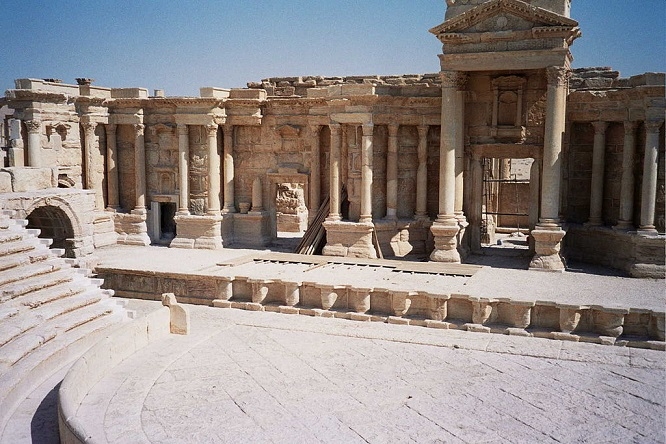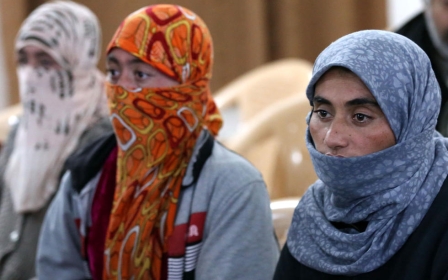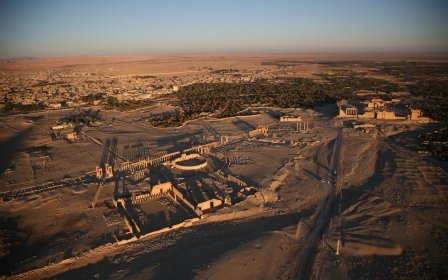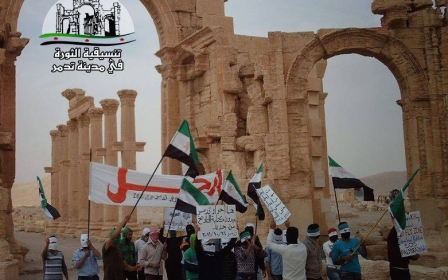IS 'executes' 20 in Palmyra Roman theatre

The Islamic State militant group shot dead at least 20 men in the ruins of Syria's ancient city Palmyra on Wednesday, accusing them of fighting for the government, a monitor said.
"IS executed 20 men by firing on them in front of a crowd gathered in Palmyra's Roman theatre, after accusing them of fighting for the Syrian regime," Rami Abdel Rahman, head of the Syrian Observatory for Human Rights, told AFP.
"IS gathered a lot of people there on purpose, to show their force on the ground," Abdel Rahman said.
IS has carried out a string of atrocities including videotaped beheadings and mass killings, rape and enslavement in areas it controls in Syria and neighbouring Iraq.
Zainab Bangura, the United Nation's envoy on sexual violence, who has collected data on IS's sex crimes, told Middle East Eye that the group had taken atrocities to a whole new level.
"They are institutionalising sexual violence; the brutalisation of women and girls is central to their ideology," Bangura said. "Their tactic is to destroy individuals, communities, laws and society and build a medieval social order."
The executions in Palmyra's ruins, if confirmed, could signal the start of "the group's barbarism and savagery against the ancient monuments of Palmyra," Syrian antiquities director Mamoun Abdulkarim told AFP.
"Using the Roman theatre to execute people proves that these people are against humanity," he added.
The group released an unverifiable video on Wednesday showing the ancient ruins intact and local activists told the Guardian that the group has promised to leave most of the site, only destroying statues "deemed polytheistic".
An anti-government Syrian radio station, Alwan FM, aired comments from an individual whom they identify as Abu Laith al-Saoudi, an IS military commander in Palmyra, who said the group would leave much of the area untouched.
“Concerning the historic city, we will preserve it and it will not be harmed, God willing,” he said. “What we will do is break the idols that the infidels used to worship."
IS seized Palmyra, including its UNESCO world heritage site, on 21 May after a bloody assault that lasted nine days.
The Britain-based observatory said IS had since executed at least 217 people, including 67 civilians, in and around the city.
EU foreign policy chief Federica Mogherini warned last Thursday of potential war crimes in Palmyra.
Thousands of people "risk to be exposed to arbitrary violent actions and more destructions of cultural sites might be perpetrated," Mogherini said.
IS "mass killings and deliberate destruction of archaeological and cultural heritage in Syria and Iraq amount to a war crime according to the Rome Statute of the International Criminal Court," she said.
Middle East Eye propose une couverture et une analyse indépendantes et incomparables du Moyen-Orient, de l’Afrique du Nord et d’autres régions du monde. Pour en savoir plus sur la reprise de ce contenu et les frais qui s’appliquent, veuillez remplir ce formulaire [en anglais]. Pour en savoir plus sur MEE, cliquez ici [en anglais].




